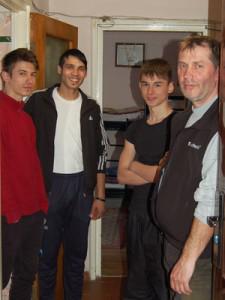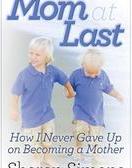Spray-painted graffiti covers the gray, communist-era concrete building housing a cramped two-bedroom apartment that’s home to seven boys and their “dad.”
They are among more than 60 boys who have grown up here, in the Berceni section of Bucharest, Romania, under the tutelage of 45-year-old Florin Grosuleac. Known as Good Shepherd, the single-apartment home was founded by Grosuleac 13 years ago and is one of a handful of private houses for abandoned boys across the city.

For a lucky few, Good Shepherd has offered an alternative to state-run orphanages or, more likely, the streets — a fate Grosuleac himself endured.
“I used to be like this — an abandoned child. I was left behind by my mother. My father took me in later,” Grosuleac says. “My mother would drop me off on Monday and pick me up on Friday evening for years until, one day, she just didn’t show up.”
Grosuleac decided to leave the orphanage for the streets in hopes of finding his father.
“But until my father came, I went through all this struggle of surviving as a kid on the streets. I would beg and steal and fight for a piece of bread,” he says. “It’s a Romanian story.”
Romania’s Legacy Of Abandoned Children
The tragedy of Romania’s orphans came to light shortly after the 1989 fall of communist dictator Nicolae Ceausescu, who had largely closed off his country to the outside world. With Ceausescu gone, images of destitute children overflowing from decaying orphanages flashed across television screens around the world.
For 10 years, prospective parents from the U.S., Canada, Europe and elsewhere flocked to Romania in hopes of adopting one of these children. But in 2001, Romania put a moratorium on foreign adoption and ended it all together four years later.
Today, more than 70,000 children fall under the care of Romania’s Department of Child Protection, though many working in child welfare say there are tens of thousands more on the streets.
Grosuleac’s goal, he says, has been to find these “lost boys” and help them, at least, survive. He aims not only to provide food and shelter, but also to teach life skills so they can make it on their own.
“In the beginning, I went on the streets,” he says. “I found the kids on the streets doing drugs. … The hardest thing I have had to do is convince these boys they need help, because in the past they didn’t realize they need help. They wanted to be on their own.”
A Tight Squeeze
The four-room apartment has two bedrooms, a kitchen and an office. It has housed as many as 12 boys. Seven live here now, including Grosuleac’s two biological sons, who are now in their 20s.
Four are in one small bedroom and three are in the other — sleeping on strategically arranged bunk beds. Grosuleac sleeps on a small bed in the office.
Life at Good Shepherd can still be tough, Grosuleac says.
“There were days when we were starving to death and we didn’t have anything to eat for days, and we would all pray here on our knees and someone would appear at the door with a stack of hot pizzas,” he says.
But the boys agree that they are better off than they would be otherwise.
George, 23, came to Good Shepherd after the death of his grandmother, when he was 12. George’s last name has been withheld for his protection; those identified as orphans in Romania are often discriminated against and sometimes passed over for jobs and apartments.
“[Florin Grosuleac] always tried to get me the best thing, the best education, and tried to make me think for myself and to look for good things in life,” George says. “The only thing I lacked was parents, but in a way it was compensated by the people from the foundation.”

